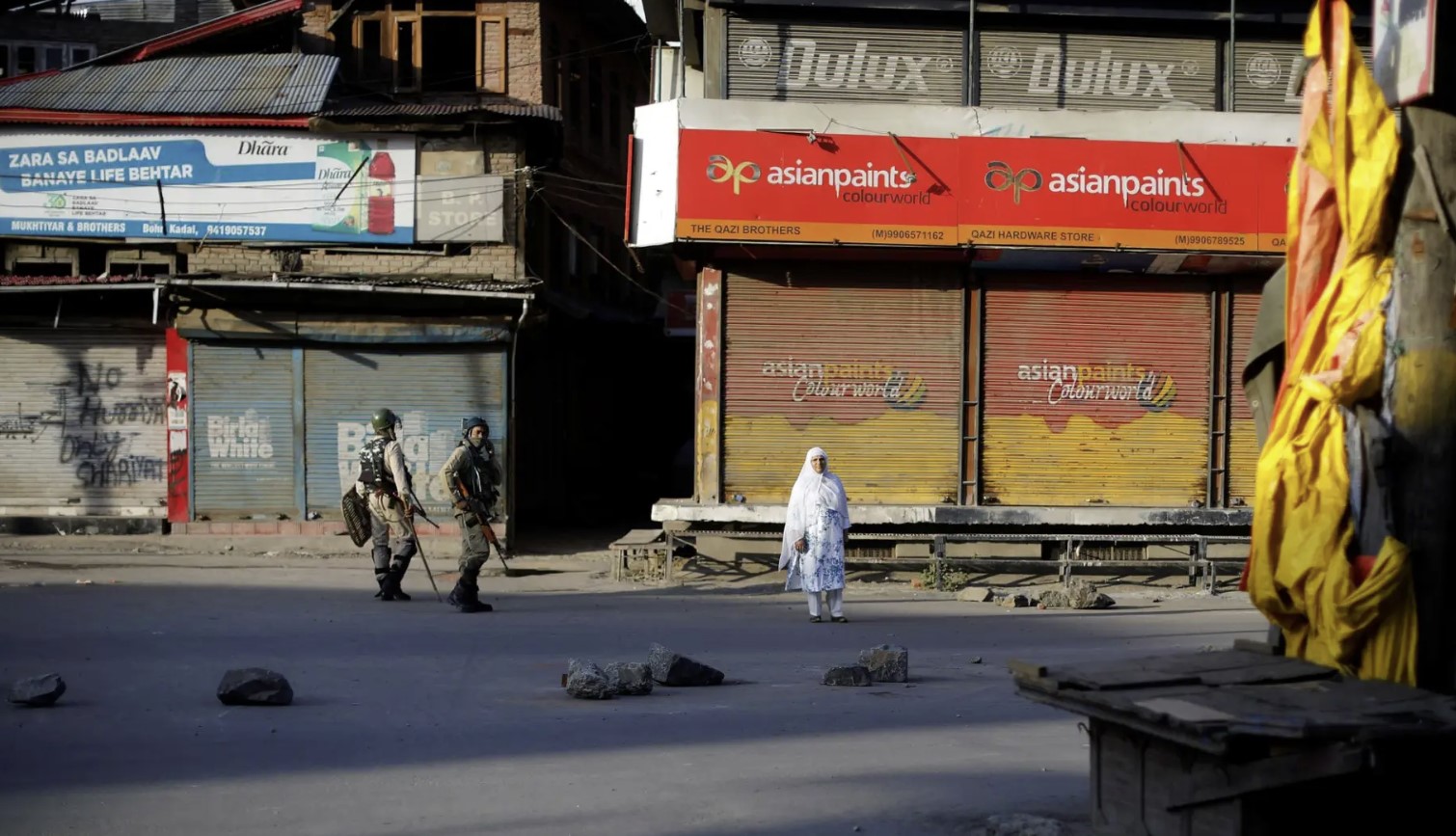- info@glopri.com
- Mon - Sat 8:00 - 18:00. Sunday CLOSE

For more than seven decades, the region of Jammu and Kashmir has been a point of agitation between Pakistan and India; two ideologically and religiously different neighbors with nuclear arms. Yet the situation in Kashmir has become much more complex, especially after the rise of Hindutva ideology in India which impacted the rights of minorities, especially Muslims. It is one of the most complex and controversial issues in South Asia. This issue exceeds the basic territorial disputes and concerns the case of individual identity, human rights, and religious rights.
Hindutva (literally Hindu-ness) is a political modern ideology that seeks the cultural hegemony of Hindus in India and promotes the idea of India as a Hindu nation. This ideology ignores minority rights, often sidelining the identities and basic rights of non-Hindu communities of India. The Hindutva ideology is advocated mainly by political groups such as Rashtriya Swamyasevak Sangh(RSS) and the governing party Bhartiya Janta Party ( BJP). Under BJP’s leadership, this ideology has gained a lot of attention and influence and it is very evident in India’s national policy. This ideological shift is most apparent in Kashmir, a region with its own socio-political identity and Muslim-majority population.
The abrogation of Kashmir’s unique status marked a pivotal moment in its history. Article 370 of the Indian constitution gave Kashmir a special autonomy which allowed it to have its own constitution and make its own rules in all matters except finance, defense, communication, and foreign affairs, was revoked in August 2019. The Indian government claimed that this decision was necessary for integration and economic development. However, many believe that it was India’s attempt at changing the region’s demographic balance by allowing more non-Kashmirans to settle there.
Under Hindutva, there has been a serious increase in security measures such as restrictions on movement, communication blackouts, and internet shutdowns. Local Political leaders have been detained and curfews have been imposed on the people of Kashmir. These measures have led to an atmosphere of fear among the local population. Additionally, the heavy military presence has intensified, isolating Kashmir from the rest of the world, and also has led to reports of human rights violations such as arbitrary detentions, harassment, and torture.
The basic religious rights of Muslims of Kashmir are also at risk. Mosques are restricted and any gatherings for religious purposes are prohibited. Education, healthcare, employment opportunities, etc have all been limited for Kashmir, pushing youth towards frustration, hopelessness, and some extremist ideologies.
Pakistan has consistently held its position that it stands with the people of Kashmir and their right to self-determination. It advocates Kashmir as occupied territory and demands that the people of Kashmir should be given the right of plebiscite as per the United Nations charter. Pakistan considers the revocation of Article 370 as a violation of International Law and the rights of Kashmir. It also stresses that this issue is not a territorial issue but a human rights issue. Pakistani political leaders and government representatives have brought the issue of Kashmir to international forums such as the United Nations and in discussions with other states. They urged the global community to take notice of human rights violations, influenced by Hindutva ideology, in the region.
The Kashmir issue and the consequences of the surge in Hindutva ideology in India are not a mere bilateral issue. It is a humanitarian crisis that needs international attention and recognition. Reports from International organizations such as Amnesty International Human Rights Watch and other NGO's have already exposed the height of serious abuses in Kashmir including extrajudicial killing, enforced disappearances, and use of pellet guns on civilians inducing severe injuries and even blindness in children.
Globally, there is increasing awareness that the crisis in Kashmir cannot be overlooked. But, the geopolitical and economic interests of states often restrict any action. Major Powers like United States and European Union nations tend to avoid criticism towards India because of its growing economic significance in the region. This cautious approach has led India to continue its violent policies in Kashmir.
Pakistan has urged the world to act on human rights and urged India to follow conventions and uphold its legal responsibilities. Pakistan is making diplomatic efforts to bring the focus on the growing humanitarian concern and to provoke the conscience of the international community on the issue of Kashmir. However, Pakistan has issues persuading the international community, particularly in South Asia due to the relations between countries.
Looking ahead, the future of Kashmir and its people under Hindutva appears uncertain and risky. Advancement of current policies risks creating a more divided and destabilized region. For true peace, a political solution that respects the desires of the Kashmir people is needed on an urgent basis. A dialogue between concerned parties i.e. India, Pakistan, and the people of Kashmir could help find a peaceful way to resolve this issue. However, as long as Hindutva remains a dominant ideology in Indian politics, the chances of reaching a fair solution seem slim. Hindutva's approach to Kashmir is alienating not only Kashmir but also Muslims across India and beyond.
Therefore Pakistan needs to maintain its support to the people of Kashmir, not only for diplomatic reasons but also for moral and humanitarian concerns. The global community also has a role to play for human rights and ensuring that the principles of freedom, equality, and justice are upheld in Kashmir.
Pakistan must, for that reason, continue to back the people of Kashmir to deter continued occupation by Indian forces because the world watches on into the future. The global community also has to guarantee freedom and justice in the region and intervene to make the human rights of the people of Kashmir respected.
As we proceed to the future the world has to pay attention to the sufferings of the people of Kashmir and to make an effort in order to bring peace and to respect the rights of that nation.